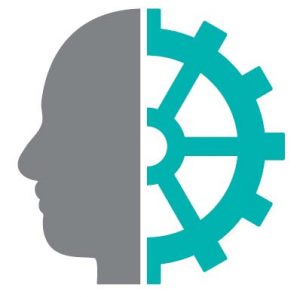Hello, HAL! Artificial Intelligence In The Contact Center
“While HAL was able to converse naturally with people on any imaginable topic, the conversational user experience with AI still isn’t there and probably won’t be anytime soon.”

In 1968, a movie called “2001: A Space Odyssey,” billed as “An epic drama of adventure and exploration” was released. Produced and directed by Stanley Kubrick, one of the most influential directors in cinematic history, “2001” told the story of a space voyage to Jupiter on the United States spacecraft Discovery One. On board Discovery One are two pilots, three scientists and the ship’s computer, HAL 9000 (Heuristically programmed ALgorithmic computer), called Hal by the crew. Hal controls most of the ship’s operations.
Powered by artificial intelligence (AI), Hal is considered to be a dependable member of the crew and engages in conversational English with other crew members. He plays chess with one of the pilots and possesses cognitive capabilities equal to or better than his human counterparts. As the film progresses, Hal becomes the movie’s main antagonist and (Spoiler alert!) things don’t end well.
While “2001: A Space Odyssey” is recognized today as one of the most influential films ever made, what isn’t as commonly known is that Kubrick also had a hand in making a 2001 movie called “A.I. Artificial Intelligence.” In the early 1990s, Kubrick began working on a film version of a short story called “Supertoys Last All Summer Long.” It was a story about a robot that resembles and behaves like a real child and his efforts to become a “real boy” a la Pinocchio. Although Kubrick died in 1999, before the movie was finished, Steven Spielberg picked up the ball and ran with it. The film was released in June 2001 with Kubrick receiving a posthumous production credit.
 Although robots that think, act and speak like humans are still the stuff of fantasy, you’d never know it today by the avalanche of press releases, webinars, marketing materials, conference sessions and briefings on the topic of AI in the contact center. Don’t get me wrong—there is a place for AI in the contact center and it will continue to grow in the future, but don’t expect a clone of HAL to replace any of your agents anytime soon. What we’re hearing about today for the most part is not true AI, it is machine learning technology. The difference? AI is defined as an intelligent agent that perceives its environment and takes actions that maximizes its chance of success at some goal. AI mimics cognitive functions that humans associate with other human minds.
Although robots that think, act and speak like humans are still the stuff of fantasy, you’d never know it today by the avalanche of press releases, webinars, marketing materials, conference sessions and briefings on the topic of AI in the contact center. Don’t get me wrong—there is a place for AI in the contact center and it will continue to grow in the future, but don’t expect a clone of HAL to replace any of your agents anytime soon. What we’re hearing about today for the most part is not true AI, it is machine learning technology. The difference? AI is defined as an intelligent agent that perceives its environment and takes actions that maximizes its chance of success at some goal. AI mimics cognitive functions that humans associate with other human minds.
Machine learning, on the other hand, gives computers the ability to learn without being explicitly programmed. Although it could be argued that machine learning is a subset of AI, machine learning still relies on algorithms and pattern recognition that it can learn from in order to make data-driven predictions or decisions. In other words, machine learning functions in operational rather than in cognitive terms.




